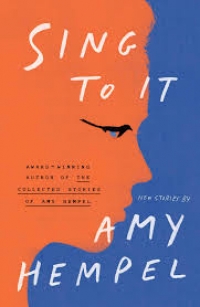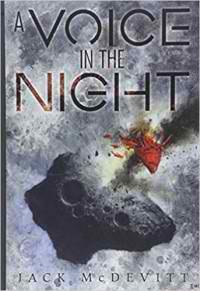
Published by Vintage Anchor on September 4, 2018
None of the stories in the 2018 edition of the O. Henry Prize Stories resemble an O. Henry story. Fewer than half impressed me as worthy of being anthologized. I suppose my taste differs from the editor and jurors who selected the stories. The editor made an attempt to be diverse and inclusive, but the stories are determinedly literary (I suppose because they are chosen from literary magazines) and most are rather bland.
Some of the best stories in this collection are told from the perspective of a child. In “Lucky Dragon,” Viet Dinh describes the radiation poisoning of a boat filled with fishermen after Americans test an atomic bomb on the Bikini Atoll. The story is an effective indictment of inhumanity because it focuses not on massive destruction, but on the very personal effects of a single explosion upon a former POW who has been destroyed by war (and by Japanese traditions of honor) in many ways.
“Nights in Logar” by Jamil Jan Kochai is told by a child who has moved to Afghanistan from America. In the company of friends, he searches for a missing dog, exacts a form of cultural retribution on a young man he doesn’t know, and gets a lesson in village history as he roams past landmarks of local and international conflict. While the story is a brief slice-of-life, it reveals more than the moment it captures.
Another story told from a child’s perspective, Mark Jude Poirer’s “How We Eat,” is a very funny look at the mother from hell. The story suggests that even bad parenting might be insufficient to muffle a child’s essential goodness.
The young girl who narrates Jenny Zhang’s “Why Were They Throwing Bricks?” recounts her relationship with her overbearing grandmother during the four occasions that the grandmother visits America. The story is funny (because the girl, in her teen years, becomes just as overbearing as the grandmother) while offering a sensitive portrayal of an aging woman who is trying to find ways to deal with her fears.
On the other hand, not every story that reveals the world from a child’s viewpoint succeeded in saying something worthwhile. “Inversion of Marcia” by Thomas Bolt, a story written from the perspective of a 14-year-old girl on vacation in Italy, would probably be of greater interest to 14-year-old girls than it was to me. A friend of the mother of the young girl who narrates Lara Vapnyar’s “Deaf and Blind” is having an affair with a deaf and blind lover in Moscow. The story is well written and I guess it tries to say something about love, but I’m not sure it says anything at all.
My favorite story, “Queen Elizabeth” by Brad Felver, distills the relationship between a math professor and a furniture maker and their lost child to its essence in a series of defining moments. The story draws its power from its sparseness.
The saddest story, “Up Here” by Tristan Hughes, is about a relationship and a decision to end an old dog’s life. The story’s ending, together with carefully planted facts as the story unfolds, implies an additional reason for the narrator’s sadness. I like the way the story says so much by leaving so much untold.
A woman in (I think) Paraguay writes letters for pay by channeling the spirit of the letter’s dead author. The story suggests that the spirits of people who are tortured by authoritarian governments continue to suffer after the body dies. The narrator of Stephanie A. Vega’s “We Keep Them Anyway” has enough pain of her own and doesn’t want to know about the pain of the dead — perhaps with good cause, when the oppressors come searching for the incriminating letters.
The rest of the stories are of lesser quality. Youmna Chlala’s “Nayla” is a slice in the lives of two young women dealing with loss in ways that their culture permits. Another slice of life, Michael Parker’s “Stop ‘n’ Go,” introduces a man who reflects on how life has changed since the war. Ann Enright’s “Solstice” focuses on an Irish man’s frustration with his inability to shield his family from his grief and detachment. All three slices are too small to allow the reader to know the characters, but they at least convey something meaningful.
Marjorie Celona’s “Counterblast” features a woman who is filled with complaints about her husband, even after divorcing him, and with self-satisfied memories about how much she loved her baby, followed by a litany of complaints about how hard it is to be a mother. The protagonist is so full of anxieties and woes that I wanted to shout “Get over yourself!” Dounia Choukri’s “Past Perfect Continuous” is told by a woman who remembers her bitter German aunt whose past was stolen from her. The story is big on bromides but short on insights.
Lauren Alwan’s “An Amount of Discretion” is about a woman who wants to bond with her stepson after her husband’s death while making a decision about the disposition of the art her husband made. The stepson has a free-spirited stepdaughter. The story invites, but does not answer, the question: “Why are you making such as big deal out of this?”
“The Stamp Collector” by Dave King is about a self-pitying alcoholic who visits his former boyfriend in the hospital after the ex-boyfriend’s alcoholic mother crashes a car. This is another story that’s well-written but not very interesting, perhaps because I’ve had my fill of stories about self-pitying drunks.
Jo Lloyd's “The Earth, thy Great Exchequer, Ready Lies” is a tongue-in-cheek fantasy that I guess is supposed to be an indictment of capitalism. The title seems to come from a poem by Thomas Yalden that is dedicated to the explorer Humphry Mackworth, which is a little more research into the obscure than I think I should need to do to figure out the meaning of a mediocre story.
Stories that struck me as pointless and/or senseless: “The Tomb of Wrestling” by Jo Ann Beard; “The Houses that Are Left Behind” by Brenda Walker; and “More or Less Like a Man” by Michael Powers.
RECOMMENDED WITH RESERVATIONS
 Wednesday, June 12, 2019 at 7:54AM
Wednesday, June 12, 2019 at 7:54AM 



